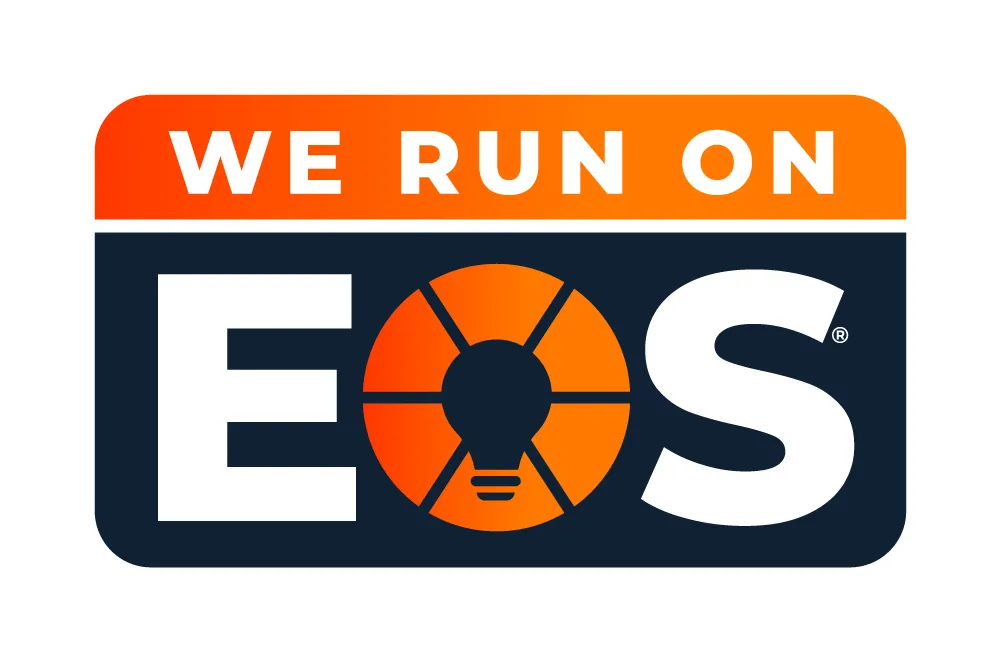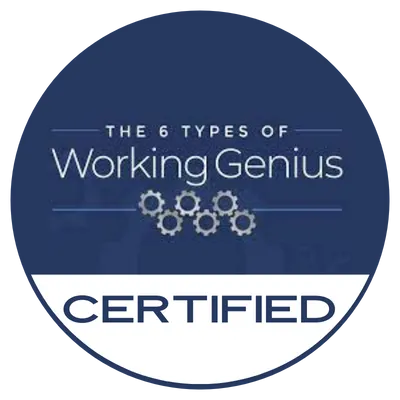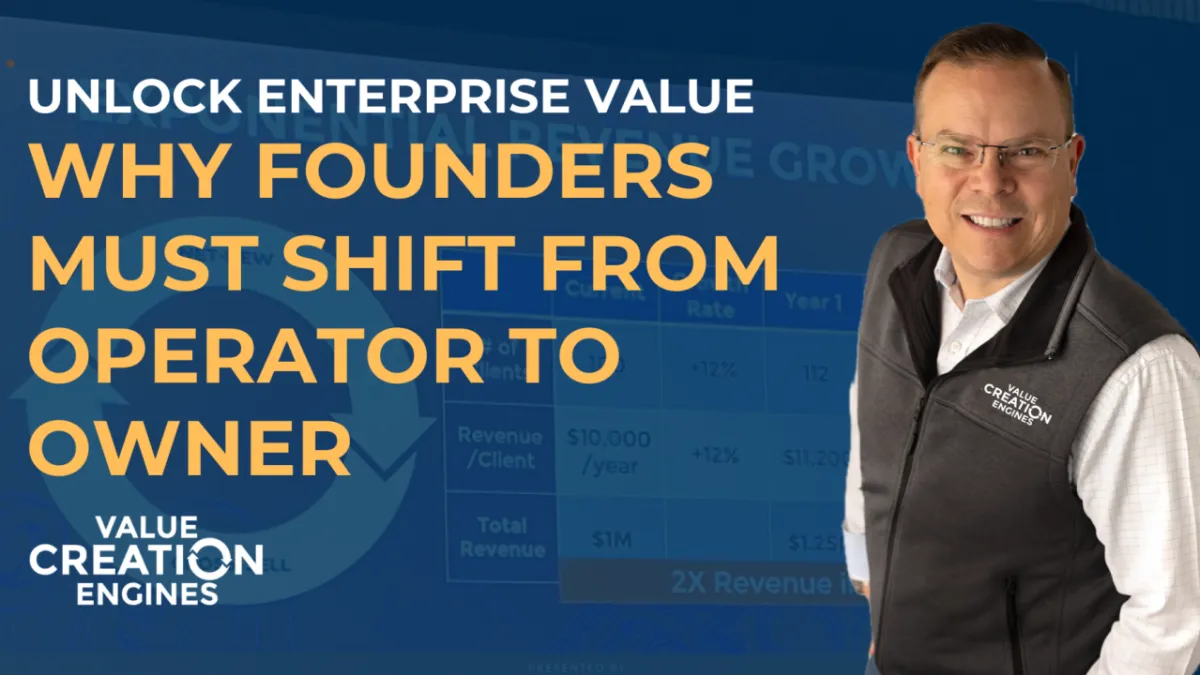
Unlocking Enterprise Value: Why Founders Must Shift from Operator to Owner
When a business begins, the founder often assumes the operator role, handling every aspect of the operation. As the company grows, it’s easy to remain involved in the day-to-day tasks. However, for a business to thrive and grow, it’s essential to transition from an operator mindset to an owner mindset. This shift allows the founder to focus on long-term strategic goals, creating enterprise value and ensuring the company’s sustainability.
The Differences
There are distinct differences between an Operator Mindset and an Owner Mindset. It’s important to recognize that the lines can sometimes be blurry, especially in smaller companies where the founder plays both roles. Even in larger companies that might operate on a platform like EOS® with separate roles for an Integrator and a Visionary, there are times when the responsibilities of these categories overlap.
Working IN the Business vs. ON the Business
An operator looks at the business from the inside, immersed in driving the business forward. Their week is filled with managing supplier issues, employee challenges, and customer concerns. They set priorities around optimizing people and processes, working IN the business. On the other hand, an owner views the business from the outside, seeing it as an asset. They develop new strategies for growth, innovate, build new partnerships, and pursue strategic acquisitions. They are focused on working ON the business.
Execution vs. Expansion
Operators concentrate on executing the plan, ensuring that daily operations run smoothly. However, an owner’s focus is on expansion, constantly thinking about how the plan should evolve for the company to grow. The owner is more concerned with adapting and refining the strategy to enable business expansion.
Management vs. Leadership
This area can be a bit gray, as both the owner and operator mindsets involve elements of leadership and management. If there were a blend, the operator might be 60% management and 40% leadership, concentrating on making everything work seamlessly. The owner mindset, however, would be more like 80% leadership and 20% management, as the owner casts the vision and trusts the operating team to execute their responsibilities.
Scorecard
Both operators and owners monitor revenue and profit, but they approach it differently. Operators focus on the KPIs that drive revenue and profit, concentrating on the immediate financial metrics. Owners, however, think about the Enterprise Value being created. They measure revenue and profit growth not only in quantity but also in quality. The quality of growth affects the multiple on EBITDA, considering factors like predictability of revenue and profit, the level of risk involved, and what can be done to maximize the company’s valuation.
Systems
Operators rely on operating systems to streamline their operations. Many companies, including those I work with, use the Entrepreneurial Operating System® (EOS®) to ensure operational efficiency. Owners, in contrast, utilize a Value Creation System to drive Enterprise Value. Just as operational chaos improves when an operating system is implemented, value creation becomes more predictable and consistent with the adoption of a Value Creation System.
Risks of Remaining in an Operator Mindset
Limited Scalability
Remaining in an operator mindset restricts the scalability of a business. When the founder is heavily involved in daily operations, there is little time left for strategic planning and growth initiatives. This hands-on approach can cap the business’s potential, making it challenging to expand into new markets or scale operations effectively.
Founder Burnout
Constant involvement in every aspect of the business can lead to significant physical and mental exhaustion. This burnout not only affects the founder’s health and well-being but also results in poor decision-making and reduced productivity. Over time, this can hinder the founder’s ability to lead the business effectively, potentially stalling growth.
Missed Strategic Opportunities
An operator mindset often focuses on immediate tasks and problem-solving, which can cause the founder to overlook long-term growth opportunities. Without a strategic focus, the business may miss out on new revenue streams, partnerships, or market expansions. This can lead to a loss of competitive advantage, especially as other businesses capitalize on these opportunities.
Difficulty in Delegation
Founders with an operator mindset may struggle to delegate tasks and responsibilities to others. This reluctance to relinquish control can prevent the development of a strong management team, which is essential for the business to run efficiently without the founder’s constant involvement. Without proper delegation, the business’s growth and operational efficiency may be compromised.
Stagnation in Innovation
Focusing primarily on maintaining current operations can result in a lack of innovation within the business. When the emphasis is on short-term operational tasks, there is less attention paid to adapting to market changes or exploring new ideas. This stagnation can cause the business to become outdated, fail to meet evolving customer needs, and ultimately lose its competitive edge.
Conclusion
Transitioning from an operator mindset to an owner mindset is essential for the long-term success and growth of a business. While it may be challenging to shift focus from daily operations to strategic planning, doing so allows the business to scale, innovate, and thrive in an ever-changing market. By embracing an owner mindset, founders can create lasting enterprise value and ensure their company’s sustainability for years to come.
Originally published on Darrell Amy's LinkedIn.
This article is part of a series: Ten Smart Moves To Maximize Enterprise Value.
FREE BUSINESS VALUATION
Large Call to Action What is Your Business Worth?
You can Discover the Value of Your Business in Less than 20 Minutes!
Join 70,000 business owners and get your score on the 8 Factors That Drive Your Company’s Value, a comprehensive analysis of your score and a detailed action plan for how to improve your score on each.

DISCOVER HOW YOUR COMPANY CAN UNLEASH STRATEGIC INNOVATION
Attract, engage, and retain top talent
Integrate new technologies like AI
Build competitive advantage
Create profitable growth
"Wow! This is incredibly powerful! My integrator needs to see this right away.
Chris C.
Visionary and CEO
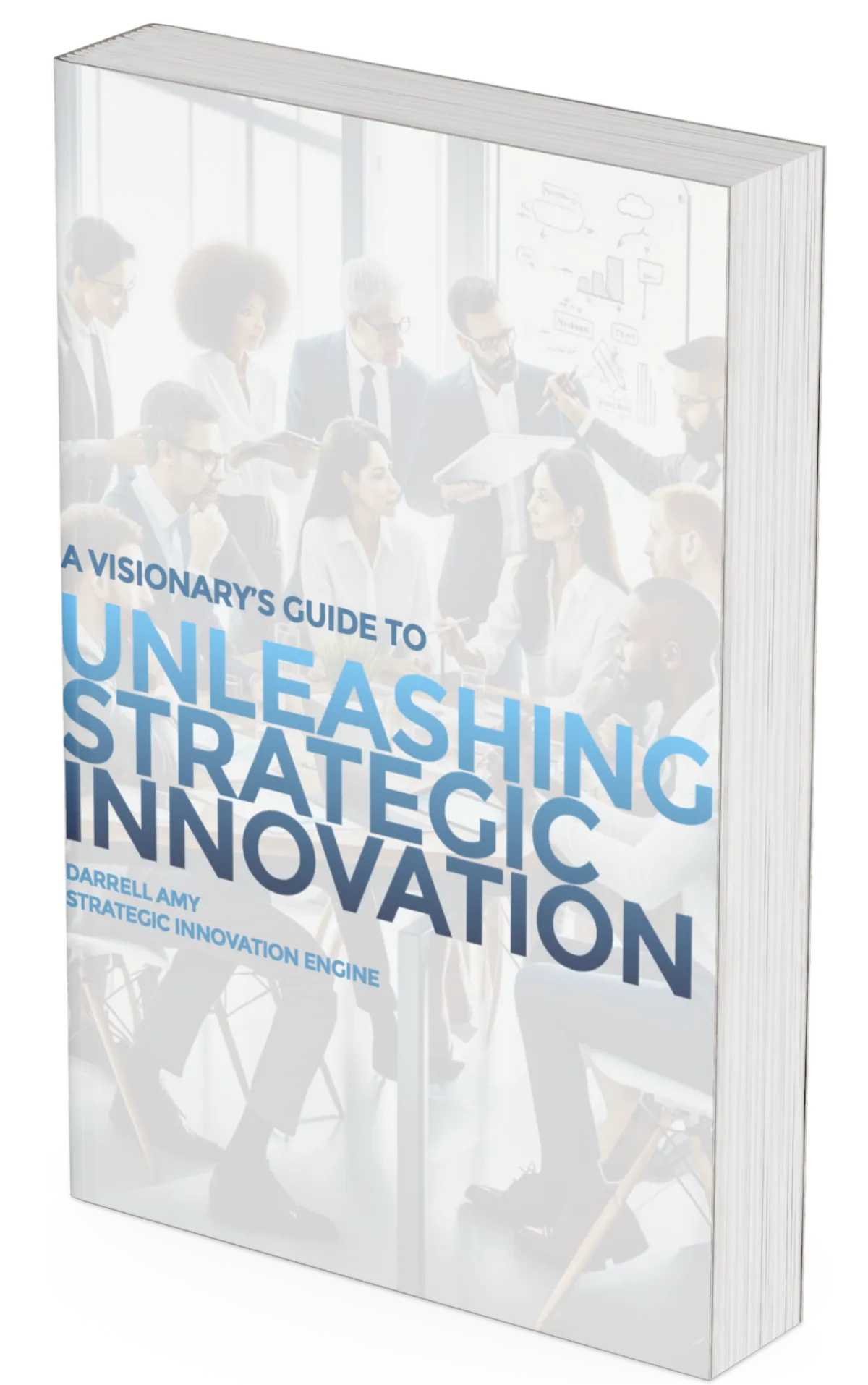

We run our business on EOS
We run our business on EOS
